Personal Race
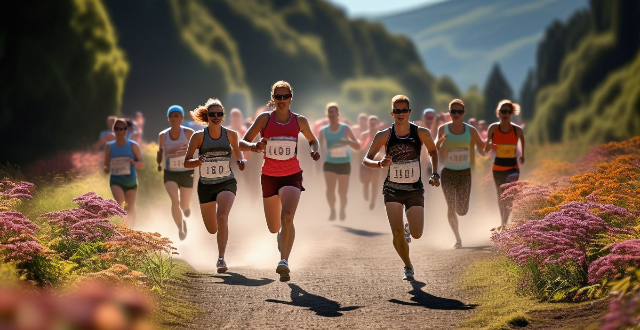
How can I maintain proper pacing during a race or long run ?
Maintaining proper pacing is crucial for achieving your best performance in a race or long run. To do this, set a realistic goal time based on your training and past performances. Start the race at a slower pace than your goal pace to warm up your muscles and avoid starting too fast. Use a running watch or app to track your pace and distance during the race, and focus on your breathing to maintain a steady rhythm. Stay hydrated by drinking water or sports drinks regularly, and adjust your pace as needed if you feel like you're running too fast or too slow. Practice pacing in training so that it becomes second nature during races. By following these tips, you can achieve your best performance while listening to your body and adjusting your pace as needed.

What are the benefits of participating in adventure races ?
Adventure races offer numerous benefits including improved cardiovascular fitness, muscular strength, weight management, stress reduction, enhanced cognitive function, emotional well-being, adventure and fun, personal growth, community involvement, and more. These multi-discipline events challenge participants physically and mentally while promoting overall health and wellness. Whether seeking a thrilling experience, personal development, or simply enjoying nature, adventure races provide an excellent way to achieve these goals while having fun and creating lasting memories.

How do I prevent injuries during marathon training ?
Preventing injuries during marathon training is crucial for a successful and enjoyable race. To reduce the risk of injury, runners should warm up and cool down properly, gradually increase training intensity, incorporate cross-training, wear proper footwear, stay hydrated and well-nourished, schedule rest days, listen to their bodies, engage in strength training and flexibility work, and prepare for race day with pacing strategies and course familiarization. By following these guidelines, runners can minimize the chances of getting injured and maximize their potential for success on race day.

What role does discipline in sports play in achieving personal goals and mental resilience ?
The text discusses the importance of discipline in sports for achieving personal goals and building mental resilience. It outlines key aspects such as setting clear objectives, consistent practice, overcoming obstacles, self-regulation, focus and concentration, and resilience under pressure. The article emphasizes that discipline not only enhances physical performance but also strengthens mental fortitude, enabling athletes to reach their full potential and thrive in their respective sports.
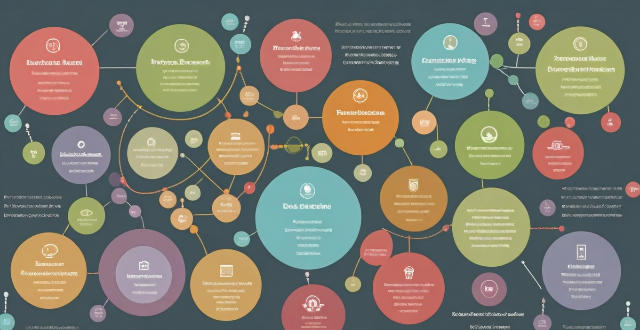
How does cultural sensitivity impact the delivery and reception of personal safety training ?
Cultural sensitivity is crucial in personal safety training as it ensures accessibility, relevance, and effectiveness for all participants regardless of their cultural background. It makes the training more accessible by considering factors such as language barriers, religious practices, and cultural norms. Cultural sensitivity ensures that the training is relevant to the needs and experiences of all participants by understanding the unique challenges faced by different cultural groups. It enhances the effectiveness of personal safety training by fostering trust, empathy, and understanding among participants. To create a culturally sensitive personal safety training program, conduct a needs assessment, involve diverse stakeholders in the design process, train inclusive facilitators, create an inclusive learning environment, and evaluate and refine your program regularly.

What kind of training do I need to participate in a marathon or trail run ?
To participate in a marathon or trail run, it is essential to have a comprehensive training plan that focuses on endurance, strength, speed, and recovery. This includes gradually increasing the distance of long runs, incorporating tempo runs and hill repeats for endurance, core workouts and lower body exercises for strength, interval training and fartlek for speed, as well as prioritizing adequate sleep and nutrition for recovery. Mental preparation techniques like visualization and goal setting can also be beneficial. On race day, pacing strategies, equipment checks, and a detailed race plan are crucial for success.

What are some examples of successful sports charity events ?
Successful sports charity events like the Nike Foundation's "Girl Effect" Marathon, The Komen Race for the Cure, and The Wounded Warrior Project's Carry Forward 5K have raised millions of dollars for various causes by combining the excitement of sports with philanthropy. These events engage participants in physical activity, raise funds and awareness for important causes, and create a sense of community among participants and supporters.

How can I distinguish myself from others with a unique personal image ?
**How to Establish a Unique Personal Image** 1. **Identify Your Passions and Interests**: List your hobbies and reflect on your values. 2. **Develop Your Skills and Expertise**: Keep learning and specialize in a niche within your field. 3. **Craft Your Style**: Create a signature style and pay attention to personal grooming. 4. **Build Your Digital Presence**: Curate social media profiles and create a personal website or blog. 5. **Network with Like-minded People**: Join communities and attend relevant events. 6. **Showcase Your Achievements**: Compile a portfolio and collect testimonials. 7. **Stay True to Yourself**: Maintain authenticity and focus on self-improvement.
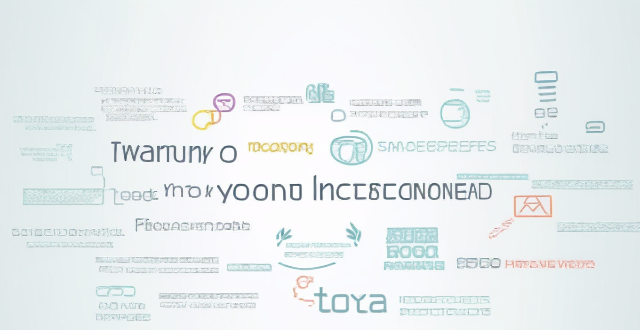
How can I protect my personal information online ?
In today's digital age, protecting your personal information online is crucial. To safeguard sensitive data, one should use strong and unique passwords, keep software and systems up-to-date, be careful with public Wi-Fi networks, be wary of phishing attacks, and limit the amount of personal information shared online. These steps can significantly reduce the risk of having personal information compromised online.

What role does nutrition play in maintaining personal hygiene ?
The article emphasizes the importance of nutrition in maintaining personal hygiene. It suggests consuming nutrient-rich foods, developing healthy dietary habits, and supporting the immune system through nutrition to improve overall health and hygiene.

How do I dress professionally as a woman without sacrificing my personal style ?
Dressing professionally as a woman doesn't mean sacrificing personal style. Here are some tips: stick to neutrals and classic colors, invest in quality basics, incorporate trendy pieces appropriately, pay attention to fit and cut, and accessorize wisely. By following these guidelines, you can create a wardrobe that reflects both your professionalism and personal style.

What is the significance of personal hygiene in food handling ?
Personal hygiene is crucial for food safety, public health protection, and maintaining quality in the food industry. It prevents cross-contamination, reduces disease transmission, and enhances food quality. Adherence to personal hygiene standards impacts regulatory compliance, consumer trust, and economic implications within the food industry.

Can you recommend any online resources or courses for personal safety training ?
Online resources and courses for personal safety training offer valuable opportunities to improve self-defense skills. Recommended platforms include Krav Maga Global, Gracie University, Aikido World, and Personal Defense Network, each providing comprehensive curriculums and certified instructors.
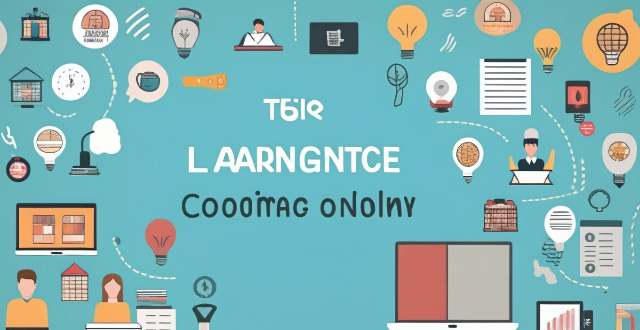
How can lifelong learning contribute to personal growth and development ?
Lifelong learning contributes to personal growth and development by enhancing cognitive abilities, advancing career prospects, providing personal fulfillment, fostering social engagement, promoting adaptability and resilience, and encouraging continuous self-improvement. By engaging in lifelong learning, individuals can maintain mental sharpness, stay relevant in a changing job market, pursue interests and passions, build social connections, become more adaptable to change, and continuously strive for self-improvement.

How does one's personal hygiene affect their social interactions ?
Personal hygiene is crucial for positive social interactions, boosting confidence, and maintaining good health. Good hygiene habits include regular bathing, teeth brushing, wearing clean clothes, hand washing, and taking care of skin and hair. Poor hygiene can lead to social isolation, misunderstandings, and health risks. Following simple tips can ensure that personal hygiene positively impacts social interactions.

How do celebrities use social media to promote their personal brand ?
Celebrities use social media to promote their personal brand by being authentic, engaging with fans, collaborating with others, maintaining consistent brand messaging, and promoting their own projects.

How can I measure the effectiveness of my personal image ?
Measuring the effectiveness of your personal image is crucial for maintaining a positive reputation and achieving your goals. Here are some ways to evaluate how well your personal image is working for you: - Self-Assessment: Ask yourself if you're confident in your appearance, communication style, and behavior, and if you receive positive feedback from others. - Feedback from Others: Seek honest opinions from trusted friends, family members, or colleagues about your personal image. - Observe Reactions: Pay attention to how people react when they meet you for the first time to gauge your first impression. - Track Your Success: Keep track of your achievements and setbacks to see if your personal image is helping you achieve your goals. - Online Presence: Check your social media profiles and websites to ensure they reflect the image you want to project, and pay attention to online engagement as an indicator of effectiveness. - Professional Development: Consider taking courses or attending workshops to enhance your personal image, and evaluate whether these efforts have led to improvements. Continuously assess and adjust your approach as needed to maintain a positive and impactful personal brand.
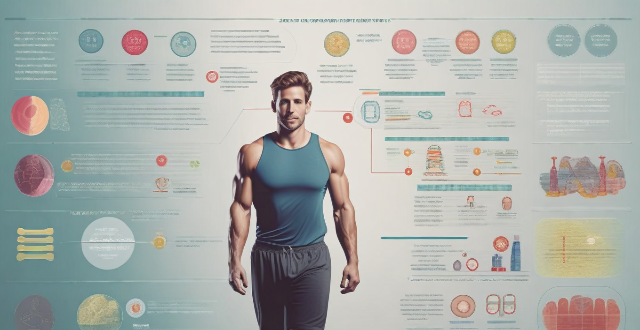
How does sports contribute to personal growth ?
Sports significantly contribute to personal growth by enhancing physical fitness, mental agility, emotional well-being, and life skills such as resilience, leadership, and adaptability. Regular participation not only maintains a healthy weight but also fosters discipline, self-esteem, and teamwork. Overall, sports are instrumental in developing well-rounded individuals capable of facing life's challenges with confidence and competence.

What are some examples of successful celebrity personal brands ?
Celebrity personal brands are a powerful tool in the entertainment industry. They allow celebrities to establish themselves as more than just an actor, singer, or athlete. Instead, they become a brand that represents their unique personality, values, and interests. Here are some examples of successful celebrity personal brands: - Oprah Winfrey: known for her philanthropic efforts, media empire, and inspirational speaking. - Kim Kardashian: rose to fame on reality TV, launched multiple successful businesses, and is a social media influencer. - Dwayne "The Rock" Johnson: began as a professional wrestler, transitioned into acting, and is known for his dedication to fitness. - Beyoncé: Grammy-winning musician, fashion icon, and activist for social justice issues. - Elon Musk: founder of several successful companies, innovator, and active on social media despite being a busy CEO.

What are the benefits of having a well-defined personal image ?
Having a well-defined personal image is crucial for individuals in both their personal and professional lives. It can significantly impact how others perceive them, which can lead to various opportunities and advantages. A well-defined personal image can help establish credibility and trustworthiness, make positive first impressions, increase professional opportunities, enhance self-confidence, improve interpersonal relationships, become a more influential leader, and gain greater control over one's reputation. By actively managing how you present yourself online and offline, you can ensure that people have an accurate understanding of who you are and what you stand for.

Is there a difference between personal hygiene and cleanliness ?
Personal Hygiene and Cleanliness are often used interchangeably, but they have distinct meanings. Personal hygiene focuses on the individual's physical well-being, while cleanliness focuses on the environment's tidiness and orderliness. Both are essential for maintaining good health and preventing the spread of infections.

Can sports help individuals achieve their personal goals ?
Sports have been an integral part of human civilization for centuries. They are not only a source of entertainment but also serve as a platform for personal growth and development. Many individuals engage in sports to achieve their personal goals, be it physical fitness, mental well-being, or social interaction. One of the most obvious benefits of sports is improved physical health. Engaging in regular physical activity can lead to reduced risk of chronic diseases such as heart disease, diabetes, and obesity, strengthened bones and muscles, improved cardiovascular health, and better sleep quality. Sports can also aid in weight management by burning calories and increasing metabolism, leading to weight loss or maintenance. Engaging in sports can help reduce stress levels by releasing endorphins, which are natural mood boosters. This can lead to improved mood and reduced anxiety, as well as better coping mechanisms for stressors in life. Participating in sports can also boost self-esteem by providing a sense of accomplishment and pride, leading to increased confidence in one's abilities and improved body image and self-worth. Sports often require teamwork and communication, which can help individuals develop these skills outside of the sporting arena. This can lead to improved interpersonal relationships and enhanced leadership abilities. Participating in sports can also provide networking opportunities, allowing individuals to meet new people who share similar interests. This can lead to new friendships and professional connections, as well as an expanded social circle and support system. In conclusion, sports can play a significant role in helping individuals achieve their personal goals. Whether it be physical fitness, mental well-being, or social interaction, sports offer numerous benefits that can positively impact various aspects of one's life. By engaging in sports regularly, individuals can work towards achieving their personal goals while enjoying the many benefits that come with it.
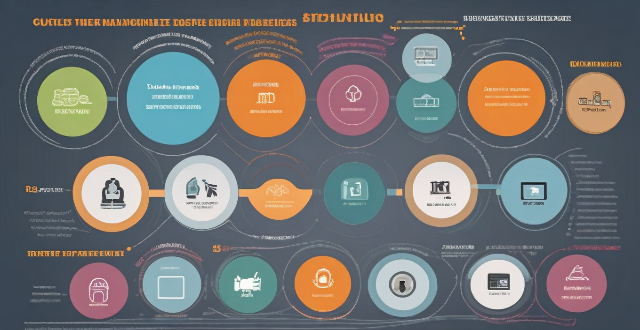
What are some common ways that companies collect and use personal data ?
Companies employ various direct and indirect methods to collect personal data, which they then use for marketing, product development, enhancing customer experiences, and ensuring security.

What are the do's and don'ts of personal branding ?
Personal branding involves creating an image or impression in the mind of others about an individual's unique attributes, skills, and values. Some do's include being authentic, defining your target audience, building a strong online presence, networking strategically, staying consistent, continuously learning and evolving, showcasing your achievements, and providing value. Some don'ts include being dishonest, overselling yourself, neglecting your online reputation, copying others, focusing solely on quantity, ignoring feedback, spreading yourself too thin, and neglecting personal development. By following these guidelines, you can create a strong and authentic personal brand that positions you as a leader in your field.

What are the benefits of lifelong learning ?
Lifelong learning, a process of continuous and voluntary learning throughout one's lifespan, offers numerous benefits that positively impact an individual's personal and professional life. These include improved cognitive abilities, increased self-esteem and confidence, personal fulfillment and satisfaction, enhanced career opportunities, higher earning potential, greater professional network, economic growth, social inclusion and cohesion, and environmental sustainability. By embracing the concept of lifelong learning, individuals can lead richer, more fulfilling lives while contributing positively to society as a whole.

What are some effective personal finance management strategies ?
Managing personal finances effectively is crucial for achieving financial stability and long-term success. Here are some effective personal finance management strategies: 1. Create a budget that tracks income, expenses, savings, and adjustments. 2. Build an emergency fund with at least 3-6 months' worth of living expenses in a high-yield savings account or money market fund. 3. Pay off high-interest debt using the snowball or avalanche method. 4. Invest for long-term goals by starting early, diversifying, and staying consistent. 5. Protect your finances with health insurance, disability insurance, and life insurance. 6. Plan for retirement by starting early, maximizing contributions, and investing wisely. 7. Educate yourself through reading books, taking courses, and seeking professional advice.

How do celebrities establish and maintain a successful personal brand ?
Celebrities establish and maintain a successful personal brand by defining their brand persona, building a strong online presence, being consistent in messaging and imagery, networking and collaborating with others, staying true to themselves, and continuously learning and evolving. A strong personal brand helps celebrities stand out in their industry and build a loyal fan base.

What are some tips for building a strong personal brand ?
Building a strong personal brand is crucial in today's competitive world. It helps you stand out and showcase your unique skills, values, and personality. To build a strong personal brand, start by defining your brand through identifying your strengths, passions, and values. Develop your online presence by creating a professional website and optimizing your social media profiles. Establish your expertise by sharing your knowledge and networking with others in your field. Maintain consistency in your messaging and actions. Monitor your reputation by staying active online and addressing negative feedback calmly. Continuously evolve your brand by staying up-to-date and reassessing your brand periodically. Building a strong personal brand takes time, effort, and consistency, but it can help you achieve your goals and make a positive impact on those around you.